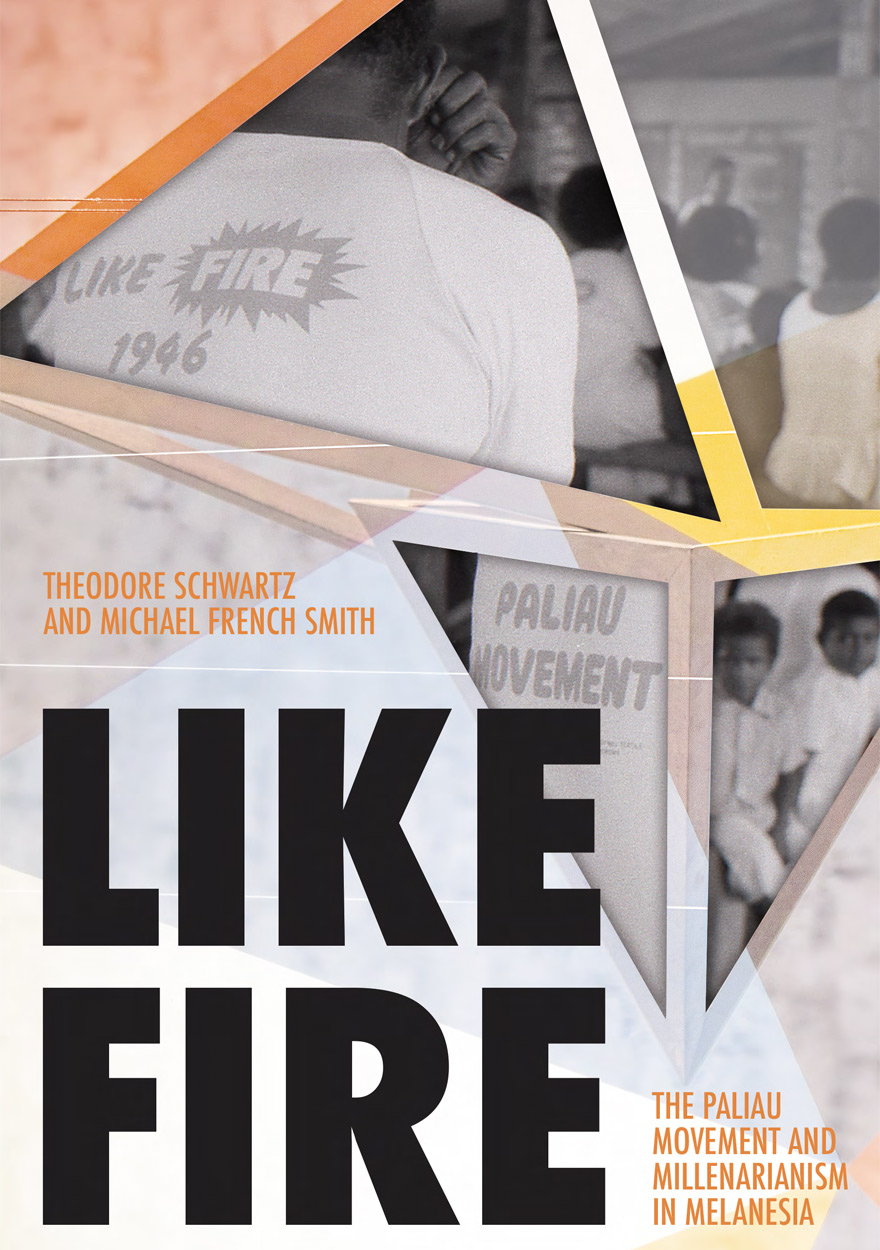The Paliau Movement and Millenarianism in Melanesia
Publication date: July 2021
‘Like Fire consummates remarkable longitudinal ethnographic research on the Paliau Movement in Papua New Guinea, pursued from the 1950s into the 1990s by Theodore Schwartz, with Michael French Smith as his sometime assistant, and updated by Smith in 2015. The theoretical arguments are highly provocative and the book is well written and fascinating throughout. Like Fire poses important questions about the driving forces and contours of Pacific Island history and the place in it of cargo cults and other millenarian movements.’
—Aletta Biersack, Professor Emerita, University of Oregon
‘Like Fire synthesises old, but inaccessible, and new material on an important and long-lasting indigenous Melanesian movement, while making extensive use of the wider literature on cargo cults and millenarianism. I find the theorising in this book both very original and an important contribution to the debates on Melanesian religion, cargo cults, and millenarianism more generally. As the authors state, the topic of millenarianism has great relevance because of its ubiquity in the contemporary world.’
—Ton Otto, Professor of Anthropology, Aarhus University, Denmark, and James Cook University, Australia
Like Fire chronicles an indigenous movement for radical change in Papua New Guinea from 1946 to the present. The movement’s founder, Paliau Maloat, promoted a program for step-by-step social change in which many of his followers also found hope for a miraculous millenarian transformation. Drawing on data collected over several decades, Theodore Schwartz and Michael French Smith describe the movement’s history, Paliau’s transformation from secular reformer and politician to Melanesian Jesus, and the development of the current incarnation of the movement as Wind Nation, a fully millenarian endeavour. Their analysis casts doubt on common ways of understanding a characteristically Melanesian form of millenarianism, the cargo cult, and questions widely accepted ways of interpreting millenarianism in general. They show that to understand the human proclivity for millenarianism we must scrutinise more closely two near-universal human tendencies: difficulty accepting the role of chance or impersonal forces in shaping events (that is, the tendency to personify causation), and a tendency to imagine that one or one’s group is the focus of the malign or benign attention of purposeful entities, from the local to the cosmic. Schwartz and Smith discuss the prevalence of millenarianism and warn against romanticising it, because the millenarian mind can subvert rationality and nourish rage and fear even as it seeks transcendence.




